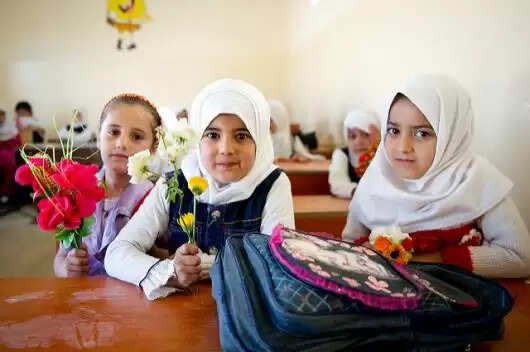The 7th of August, 2024, Baghdad — In a move that has sparked great controversy and widespread demonstrations, the Iraqi Parliament has tabled a law that proposes to reduce the age at which girls are legally allowed to marry from its current level of 15 to 9. The proposed legislation has provoked heated debates all throughout the country and has created major worries among those who campaign for human rights and those who watch international affairs.
The law, which was initially proposed by Member of Parliament Ra'ad al-Maliki, has been supported by the Coordination Framework, which is a coalition of conservative Islamist parties that now enjoys a dominating position in the Iraqi Parliament. It is argued in the Framework that the measure is in accordance with constitutional principles and does not go against the essential principles that are outlined in Sharia law. During his defence of the measure, Al-Maliki made the following statement: "Some people have hatred for applying the provisions of God's law to those who want them." This statement brought to light the persistent conflict that exists in Iraq between traditional values and contemporary legal standards.
Large-Scale Protests Break Out
There have been rapid and widespread protests from a variety of different groups of Iraqi society in response to the idea. Proponents of reducing the marriage age believe that doing so would be detrimental to the rights and well-being of young girls, as it would put them at risk of being married off at a young age or being forced to do so. Concerns have been raised by human rights organisations and activists that a measure of this nature would not only contribute to the perpetuation of gender inequity but would also put the health and educational possibilities of children and adolescents in jeopardy.
Baghdad, Erbil, and Basra are among the major cities that have witnessed the breaking out of protests. Those who are opposed to the law have turned to the streets, waving banners and screaming chants that condemn it. These demonstrators include organisations that advocate for women's rights and civil society organisations. They contend that the legislation is a step in the wrong direction, not only because it violates international human rights norms but also because it puts the future of a great number of young girls at jeopardy.
The Reactions of Politicians and Residents
The Coordination Framework, which is comprised of a number of notable conservative and Islamist groupings, has been actively advocating for the measure. The individuals in question contend that the legislation is a manifestation of Islamic principles and historic values, which they feel ought to serve as the foundation for Iraq's legal and social structure. In order to guarantee that the marital procedures are in accordance with their understanding of Sharia law, proponents of the bill have portrayed it as a necessary precaution.
The measure, on the other hand, has been criticised by groups that are opposed to it, claiming that it is an insult to modernity and development. A significant number of individuals contend that the proposed age decrease does not take into consideration the psychological, emotional, and physical maturity that is necessary for union. Critics are also concerned that the measure would make the problems that already exist in relation to the exploitation and abuse of children even worse.
There are significant concerns that have been voiced by international organisations over the potential effects that the Act could have. Several organisations, including Human Rights Watch and the United Nations Children's Fund (UNICEF), have urged the Iraqi government to rethink the plan. They have emphasised the significance of safeguarding the rights of children and ensuring that they are not forced into marriage at a young age, which might be detrimental to their growth and well-being.
Steps to Take Next and an Uncertain Future
There is still a lack of clarity on the further measures that will be taken in the parliamentary process as the debate over the bill still continues. In order for the measure to be implemented into law, it must first go through several rounds of inspection and approval within the Parliament. It is possible that the proposal's trajectory will be affected by the considerable public outcry and criticism; yet, the strong support from the Coordination Framework indicates that it will be confronted with substantial hurdles.
The legislation that has been suggested has brought to light the profound contradictions that exist within Iraqi culture with regard to matters of religion, the law, and human rights. At the same time, it highlights the larger conflict that exists within the country between conservative and progressive forces, and it reflects the intricate relationship that exists between tradition and modernity in the process of determining Iraq's destiny.
In light of the fact that Iraq is now struggling with this contentious subject, the outcome of the bill is expected to have significant repercussions for the legal and social landscape of the country. It is of the utmost significance to address the concerns of all stakeholders in order to achieve a society that is just and equal, as seen by the large protests and continuous debates that have taken place.
--

